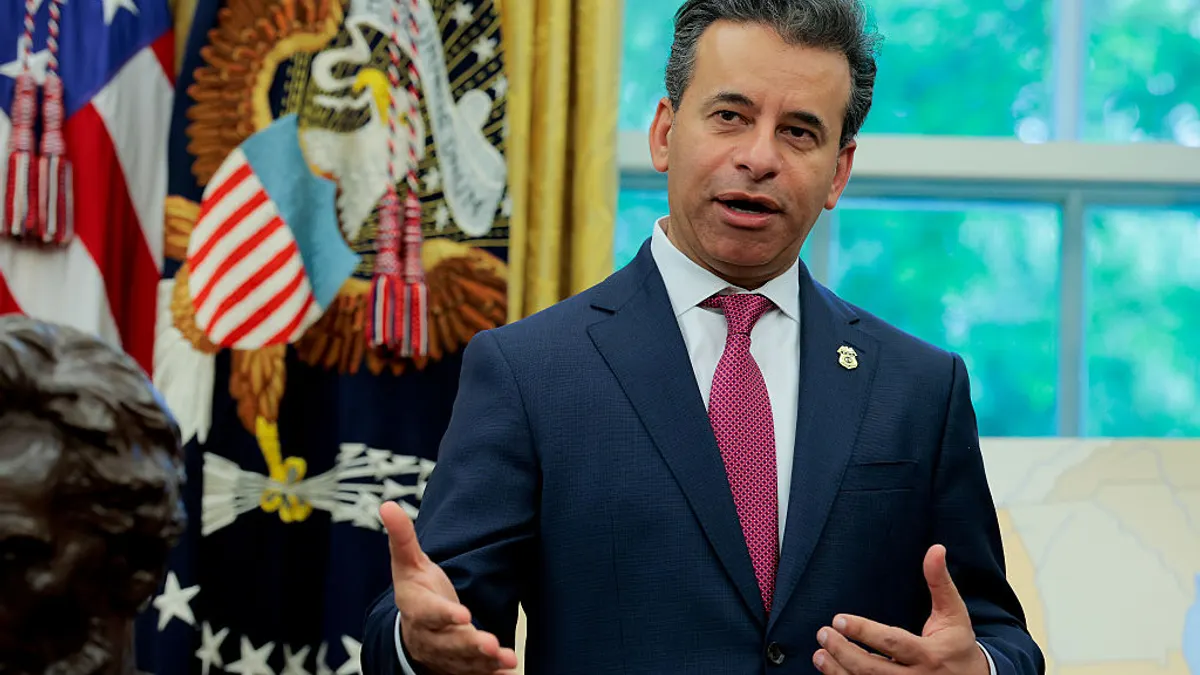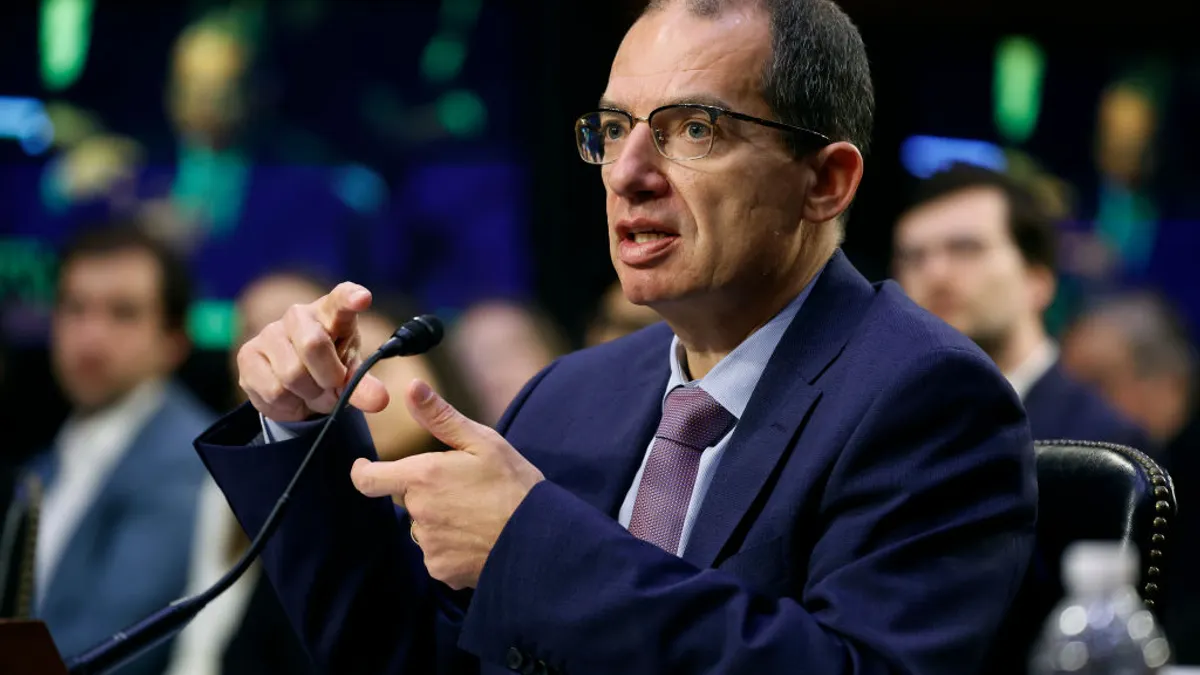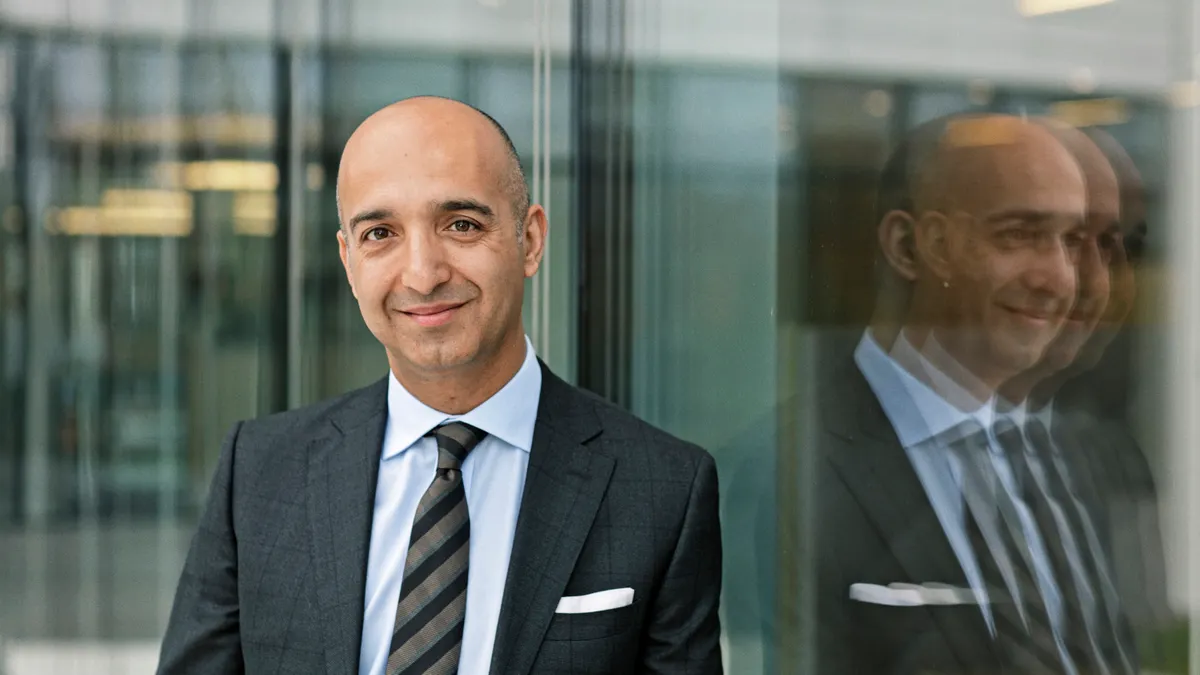Many of president-elect Donald Trump’s cabinet nominees have a clear objective on federal governance: cut, slash and burn.
Tesla CEO Elon Musk and former biopharma executive Vivek Ramaswamy, both of whom Trump announced would lead a new Department of Government Efficiency, have been the most vocal proponents of those ideas and plan to cut $500 billion in federal spending while eliminating a huge swath of the government workforce.
Trump also named Linda McMahon of pro wrestling fame to serve as secretary of the Department of Education, an agency he’s pledged to close entirely. McMahon has little previous experience in education, and Senate Republicans introduced a bill last week that would demolish the department.
Whether or not these nominees are confirmed, it’s clear the incoming Trump administration isn’t planning to carry on with business as usual. And Trump’s tendency to tap loyalists — rather than career bureaucrats — for leadership positions could also bring outside-the-box approaches to the country’s top tier of government management.
The land of Kennedy and Oz
Last week, Trump named cardiologist and TV host Dr. Mehmet Oz to serve as administrator of CMS, a position charged with leading insurance programs including Medicare and Medicaid that cover more than 160 million Americans. Robert F. Kennedy Jr., a vaccine skeptic who was picked to become secretary of HHS, could become Oz’s boss.
The pair met in the past when Kennedy appeared on Oz’s show. And the duo have been in lock step when it comes to tackling chronic diseases at the federal agencies.
“Dr. Oz will work closely with Robert F. Kennedy Jr. to take on the illness industrial complex, and all the horrible chronic diseases left in its wake,” Trump said in a Truth Social statement last week.
Oz, a Harvard and Penn School of Medicine grad, has no government experience outside of a failed 2022 Senate run in Pennsylvania. Meanwhile, Kennedy, a lawyer, has no medical expertise.
CMS and NIH changes
If Oz is confirmed to lead CMS, he will be able to influence the future of the Medicare drug price negotiation program, which is already underway with the first wave of price changes set to go into effect in 2026. While Vice President Kamala Harris promised to accelerate the pace of the program by ramping up the number of drugs facing price negotiations, Trump’s stance on the issue has been less clear.
During his Senate campaign, Oz criticized pharma for high insulin prices and said he has “taken on Big Pharma.” Kennedy, too, has publicly condemned steep price hikes in the last few years. More recently, he supported drug price caps “so that companies can’t charge Americans substantially more than Europeans pay.”
However, campaign records reveal a cozier relationship between Oz and Big Pharma. Bristol Myers Squibb, J&J and AbbVie contributed thousands of dollars to his campaign, according to Bloomberg, while Pfizer CEO Albert Bourla also made a contribution.
CMS is scheduled to release 15 more Part D drugs up for price negotiations by Feb. 1, 2025, but Oz could potentially modify or delay the program, according to Bloomberg.
Kennedy is gunning for bigger changes to the National Institutes of Health. On the first day of the new Trump administration, Kennedy wants to replace 600 NIH employees, he said during an event in Arizona earlier this month.
"We need to act fast, and we want to have those people in place on Jan. 20 so that on Jan. 21, 600 people are going to walk into offices at NIH, and 600 people are going to leave," he said.
While running as an independent for president last year, Kennedy specifically indicated he wanted to replace NIH scientists that were focused on infectious diseases such as COVID-19 and reorient the agency to tackle chronic diseases like diabetes and obesity.
“We’re going to give infectious disease a break for about eight years,” he said in November 2023 to an anti-vaccine crowd at an event in Georgia.
Further, Kennedy wants to change regulations “so that NIH funds can’t go to researchers with conflicts of interest,” he wrote in a September op-ed.
It’s unlikely Kennedy can induce all these changes himself, however, as Congress controls the purse strings for NIH. Still, there may be support for institutional changes among the Republican-controlled House and Senate. In fact, a group of Republicans have already called on NIH reform to “streamline” the agency and reduce its footprint from 27 institutes to15 while providing “clarity and transparency on funding lines.”
New FDA
The FDA is already undertaking a significant restructuring plan under commissioner Dr. Robert Califf, but Trump appointees are eyeing further change, as well. Ramaswamy, who was formerly CEO of pharma company Roivant, hopes to loosen regulations in the drug development process.
Last week, he called out the FDA’s “micromanagement” of the regulatory process for holding back innovation and raising barriers for smaller biotechs compared to bigger pharma companies.
Kennedy has also called for reform to the drug user fees pharma companies pay when they apply for a new approval, which supplement a significant chunk of the FDA’s budget.
While neither Ramaswamy or Kennedy have publicized a concrete plan to reform the FDA, their criticisms and promises to sweep out a number of workers indicate the potential for upheaval at the agency.
Pharma advertising
One of Kennedy’s most clear-cut objectives is to “ban pharmaceutical advertising on TV.”
“There are only two countries in the world that allow pharmaceutical advertising on the airwaves,” Kennedy said just prior to the election. “And we have the highest disease rate and buy more drugs, and they’re more expensive than anywhere in the world.”
Pharma advertising is big business in the U.S. — marketing dollars for the top 10 biggest ad spends reached $3 billion last year. Pharma companies are also pushing even further into the DTC space with their own telehealth platforms.
As head of HHS, Kennedy won’t be able to accomplish a ban without legislation, according to experts. The FDA recently enhanced pharma ad regulations, requiring drugmakers to ensure side effects are presented in “a clear, conspicuous and neutral manner” for TV ads.
Medicare Advantage for All
Oz could also rock the Medicare boat. During his 2022 Senate run, Oz campaigned to expand privately-run Medicare Advantage plans to all Americans, paid for by payroll taxes — typically an unpopular position among Republicans.
Instead of the typical fee-for-service Medicare model, MA plans — which already cover about one-third of Medicare recipients — receive a fixed amount per member per month. Most include drug coverage, and some offer holistic wellness services outside of traditional Medicare. Currently, there are fewer MA plan options due to rate cuts under the Biden administration, and more payment cuts are scheduled for 2025.





















